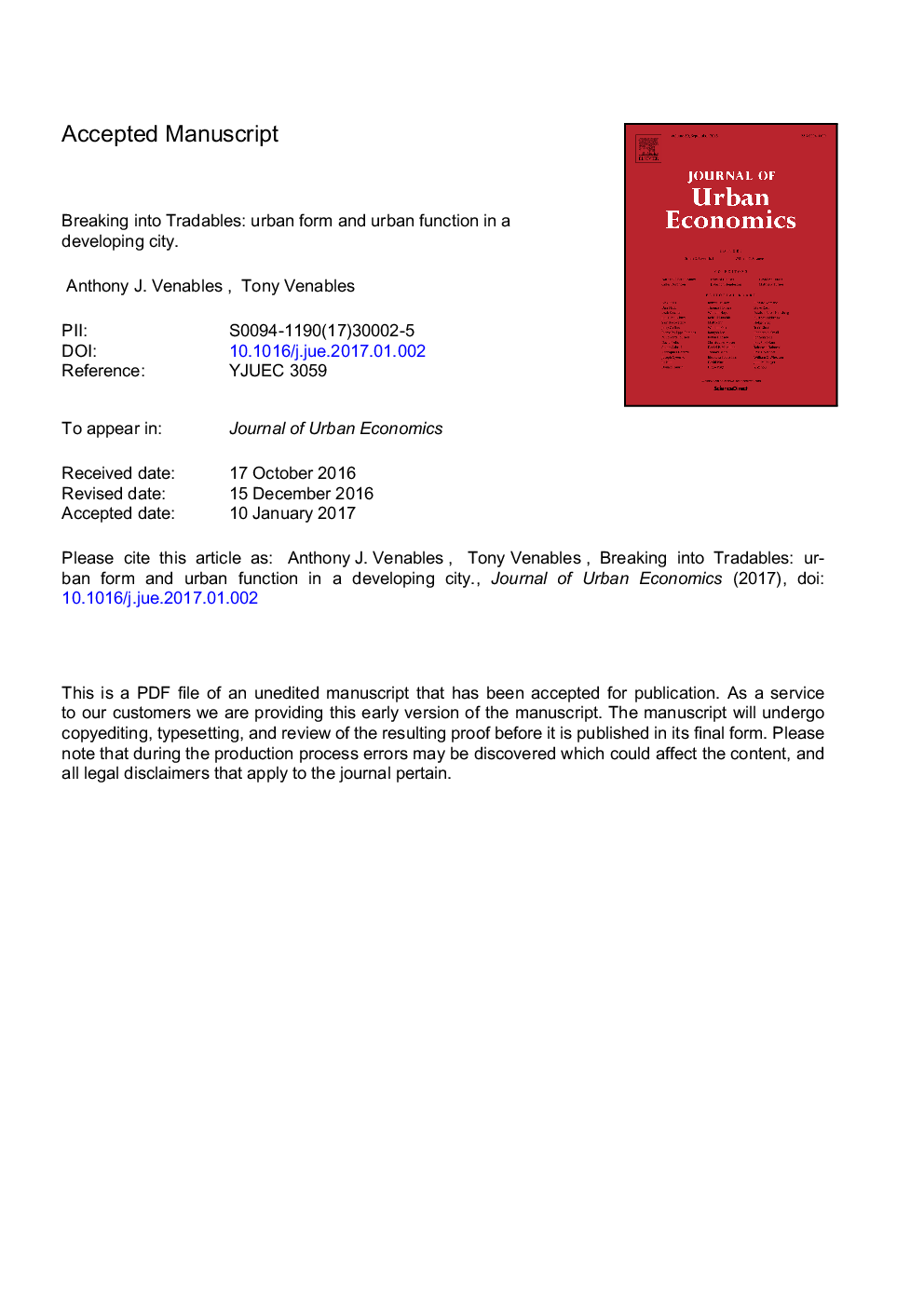| Article ID | Journal | Published Year | Pages | File Type |
|---|---|---|---|---|
| 5101952 | Journal of Urban Economics | 2017 | 27 Pages |
Abstract
Many cities in developing economies, particularly in Africa, are experiencing 'urbanization without industrialization'. This paper conceptualizes this in a framework in which a city can produce non-tradable goods and - if it is sufficiently competitive - also internationally tradable goods, potentially subject to increasing returns to scale. A city is unlikely to produce tradables if it faces high urban and hinterland demand for non-tradables, or high costs of urban infrastructure and construction. The paper shows that, if there are increasing returns in tradable production, there may be multiple equilibria. The same initial conditions can support dichotomous outcomes, with cities either in a low-level (non-tradable only) equilibrium, or diversified in both tradable and non-tradable production. We demonstrate the importance of history and of expectations in determining outcomes. Essentially, a city can be built in a manner which makes it difficult to attract tradable production. This might be a consequence of low (and self-fulfilling expectations) or of history. Predictions of the model are consistent with a number of observed features of African cities.
Related Topics
Social Sciences and Humanities
Economics, Econometrics and Finance
Economics and Econometrics
Authors
Anthony J. Venables,
